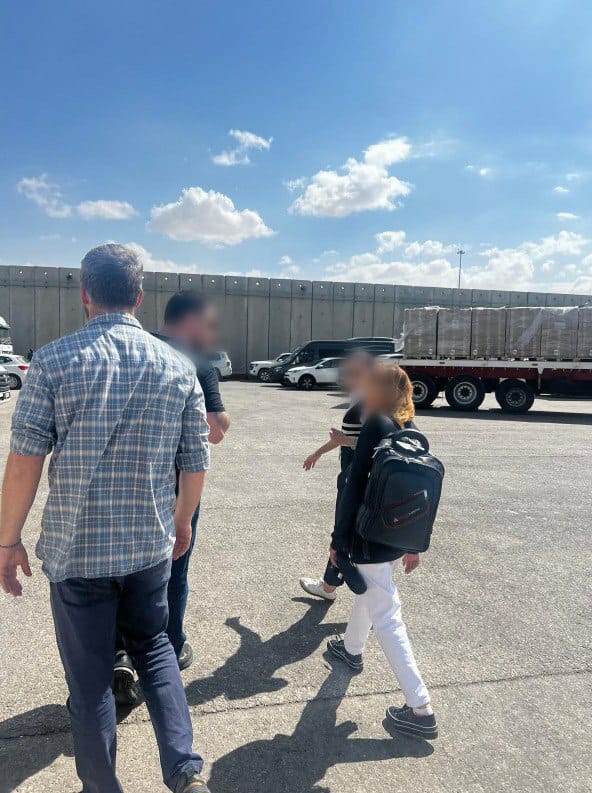A Remarkable Tale of Rescue: The Liberation of a Yezidi Young Woman from Hamas’s Grasp
In a tale that intertwines the threads of horror and hope, a young Yezidi woman, who fell victim to the atrocities of Daesh, has returned to her homeland after more than a decade of torment.
The Sinister Fate of a Young Yezidi
In a grievous chapter of history, young Fauzia Amin Siddo, but a mere eleven summers old, was ensnared by the nefarious hands of the Islamic State (Daesh). Deprived of her innocence and sold into the clutches of a Hamas operative in the Gaza Strip, her plight serves as a grim reminder of the horrors faced by countless young women at the hands of merciless terror organisations.
A Glimmer of Hope Amidst Darkness
The tides of fortune turned during the recent conflict known as “Iron Swords,” when the very man who had held her captive met his demise, likely at the hands of the Israeli Defence Forces. Fauzia’s chance for escape arose as she fled to a clandestine refuge within Gaza, where she remained hidden from her captors.
An Intricate Rescue Operation
In a commendable display of international cooperation, the Israeli Defence Forces, alongside the American Embassy in Israel and various global entities, orchestrated a complex and covert operation to extricate Fauzia from her dire circumstances. In recent days, she was safely extracted through the Kerem Shalom crossing into Israel, from whence she made her way to Jordan via the Allenby Bridge, ultimately reuniting with her family in Iraq.
A Stark Reminder of Atrocities
Fauzia’s story stands as a poignant testament to the insidious links between Hamas and Daesh, and underscores the grave human rights violations perpetrated by these terrorist organisations in Gaza. Her liberation not only marks the end of a prolonged ordeal but also serves as a clarion call for awareness and action against the ongoing atrocities faced by those caught in the crosshairs of terror

The Tragic Persecution of the Yezidis: A Tale of Suffering at the Hands of Daesh
The Yezidis, a venerable and ancient people of singular faith, whose homeland rests within the rugged peaks of Mount Sinjar in Iraq, have long endured the cruelties of persecution. Yet never before had they faced a trial as grievous as that which befell them at the hands of the fanatical forces of the so-called “Islamic State” (Daesh).
In the dark year of 2014, as Daesh swept through their lands, the Yezidis were marked as heretics, their beliefs condemned by the brutal regime. A great many of their number—innocent men, women, and children—were subjected to unspeakable horrors. The men, in countless numbers, were put to the sword, and the women and children, including many maidens, were seized and sold into slavery. Such was the fate of the Yezidi women, who were treated as spoils of war, their dignity and freedom torn from them.
The plight of the Yezidis stands as one of the most harrowing chapters in the annals of modern persecution. Entire families were scattered, their lives reduced to naught but suffering and fear. The grim spectre of genocide loomed over the Yezidi people, as their culture, faith, and very existence came under mortal threat.
The tragic case of young Fauzia Amin Siddo, abducted in her tender youth and sold into servitude, is but one of the countless stories of torment and loss that have arisen from the devastation wrought by Daesh. It serves as a somber reminder of the depths of human cruelty when fanaticism is left unchecked.

